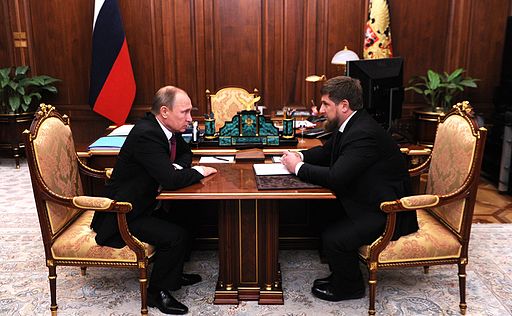A nation must think before it acts.
On September 18th, Chechnya, one of the Russian Federation’s 22 constituent republics, held elections to vote for its Head, lawmakers of the republic’s parliament, as well as local government bodies. Early election results showed that Ramzan Kadyrov was set to win the elections, receiving 98% of the votes. In almost 10 years as Head of the republic, Kadyrov’s list of accomplishments in Chechnya is long and impressive. But his regime is also known for corruption, disregard for human rights, as well as severe brutality, particularly in response to signs of terrorism. But the truth is that, even under those circumstances, Chechnya has never been as stable as it has been under Kadyrov. When going over the long list of Russia’s vulnerabilities, unpredictable and terrorism-ridden Chechnya is at the very top. Yet, Kadyrov has proven to be Putin’s secret weapon for keeping a lid on that boiling pot. Thus, it can be argued that Kadyrov’s role has been integral to maintaining the Putin government’s success and stability in Russia.
Kadyrov is Keeping Chechnya in Check After a Long History of Instability
39 year-old Ramzan Kadyrov has ruled the republic of Chechnya since 2007. Before his term as Head of the republic ran out in April 2016, he publicly announced that his job in Chechnya was done, that he had accomplished a lot, and that now he was ready to step down. He said it was time for Moscow to find someone else to step in. This announcement came as no surprise to those who believed that Kadyrov aspired to go to Moscow, to take part in the greater Russian politics, and perhaps even become Putin’s prime minister, or even president of Russia one day. To most other observers, however, it was simply an expression of false humility. But, back in April, Putin appointed Kadyrov interim Head of Chechnya, until the elections took place in September. This appointment proved that Putin had no plans for Kadyrov beyond Chechnya, at least not in the near future. Perhaps this is because Kadyrov’s leadership in the republic has meant a great deal of stability (albeit at the expense of freedom and democracy) for a region that could otherwise be compared to a “ticking bomb” for Russia. After all, this is a region known for its instability and danger.
Chechnya is particularly infamous for breeding home-grown terrorism in Russia. Russian-Chechnyan relations were historically hostile, and date back to the Russian Empire’s annexation of Chechnya in 1870. Chechen attempts at gaining independence from Russia have ended in bloodshed and war ever since. In 1944, more than half a million Chechens, Ingush and other north Caucasian peoples were exiled to Siberia and Central Asia by the Soviet government as punishment for collaborating with the invading German forces from 1940-1944. After many years of living under the rule of the Russian Empire, then Bolshevist Russia, and, later, the Soviet Union, Chechnya was finally able take advantage of Soviet Russia’s fragmentation in the early 1990s. After the fall of the Soviet Union, Chechnya declared independence in 1993 as the Chechen Republic of Ichkeria.
Continue reading, “How Integral is Chechnya’s Ramzan Kadyrov to Putin’s Regime?”




